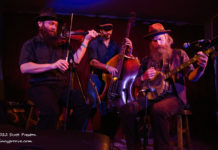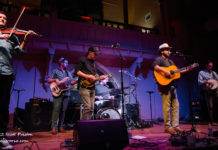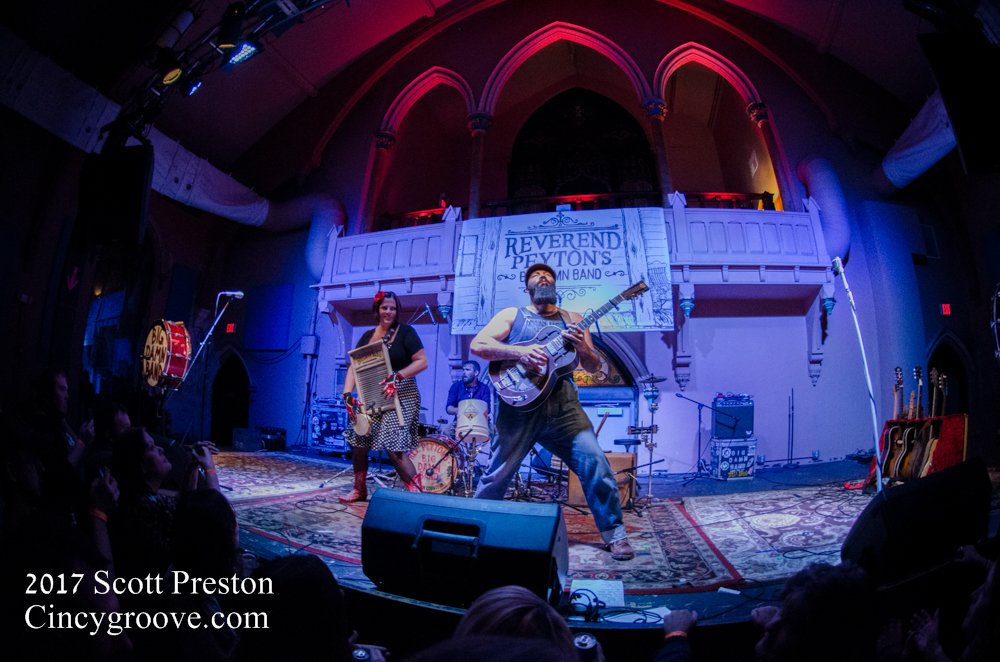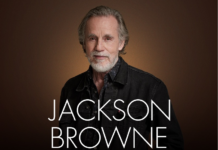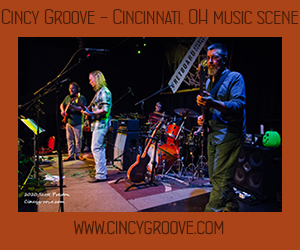
Photo by Scott Preston
From houses of worship to houses of blues, Ruthie Foster has always been a rafter-rattler. And with a soul-filled voice honed in Texas churches, she can move audiences to tears or ecstasy — sometimes in a single song. Her last two albums, 2009’s The Truth According to Ruthie Foster and 2012’s Let It Burn, moved the Recording Academy to deliver Best Blues Album Grammy nominations; her latest, Promise of a Brand New Day, releasing August 19 on Blue Corn Music, could make her a contender once more
For this effort, Foster put Meshell Ndegeocello in charge as her producer and then got out of the way, letting the lauded singer and bassist call the shots regarding players, takes and mixing. “I wanted this album to highlight Ruthie’s voice and also communicate her vibe, give a fuller picture of her artistry and ability,” explains Ndegeocello. “She really trusted me with the music and I think we’ve made something that complements and holds its own alongside the power of her voice.
Ndegeocello played bass and enlisted her regular guitarist, Chris Bruce (Sheryl Crow), and keyboardistJebin Bruni (Aimee Mann), plus drummer Ivan Edwards and backing vocalist Nayanna Holley. Foster did request two special guests: guitarist Doyle Bramhall II and singer Toshi Reagon.
“Meshell asked me, ‘Who’s at the top of your list?’” Foster recalls. Bramhall’s been there for a while, but her fellow Austinite can be hard to nail down because of his day job with Eric Clapton. Ndegeocello pulled it off. As for Reagon, daughter of Sweet Honey in the Rock founder Dr. Bernice Johnson Reagon and godchild of Pete Seeger, Foster has known her for years. “It was so sweet and such a relief to finally put our names together on a project,” Foster says.
Promise of a Brand New Day includes seven songs written or co-written by Foster, most of them “songs with messages—because that’s important to what I do,” she explains. “Maybe that’s from growing up with people like Mavis [Staples] and a lot of strong women who have come before me, who are great singers but also have a message. They give you something; they say something.”
Foster descends from a line of strong women; while sitting in the courtyard of an Austin coffee shop, she notices grapevines climbing a fence and recalls picking Mustang grapes for her grandmother in tiny Gause, Texas, a church-filled town about 90 minutes northeast of Austin. Her family was full of gospel singers; to this day, when she gets nervous onstage (yes, she still does), she’ll reference her early influences, from “the sisters in the amen corner” to the music she fell in love with.
Those influences are clear on Staple Singers’ “The Ghetto,” a centerpiece track full of gentle electric guitar and a slow-build fire that gains intensity with each verse. “We sent an email to Mavis to check the words,” Foster says, “and she sent an email back that said, ‘Tell Miss Ruthie she picked a good one!’”
Classic influences can be felt elsewhere, including “Second Coming,” a civil-rights protest song in the folk-gospel tradition, with handclaps and a strummed acoustic guitar.
“When you see me talk about my country life and picking Mustang grapes, and referencing people likeMississippi John Hurt and Jessie Mae Hemphill, that’s a way of grounding myself,” she says. “People connect to that, and that’s when the energy starts building, and then I can get to the big stuff and have some fun and wave my dreadlocks around.”
She references those roots again for “New,” a gorgeous song written by and featuring Reagon. But unlike Foster’s last release, Promise of a Brand New Day is not covers-oriented, nor, lest one get the wrong impression, is it a gospel album.
“If anything, I stayed with that old-school soul feel,” Foster says. “Meshell wanted to make it a point for me to write more songs for this one, and I did too. I wasn’t sure I had that in me, but I did some diggin’.”
Of course, she had it in her. From the opener, “Singing the Blues,” in which she observes, “a bit of Bobby ‘Blue’ Bland never, never gets old,” to the a cappella “Brand New Day,” originally sung into her phone just before going onstage one night in an effort to fend off tour-induced loneliness, Foster delivers one powerful track after another. She’s even got a co-write with Stax great William Bell “It Might Not Be Right.” A musical nod to the late soul-stirrer O.V. Wright, it addresses gay marriage. Not so long ago, it might have been about interracial couples.
“William had titles and grooves, and I had verses and ideas,” she says. “He’s great at coming up with these hooks, and it’s just a great title. ‘It might not be right for the world, but it’s all right with this girl.’”
Foster got even more personal on “Complicated Love,” a relationship ballad.
“It’s definitely goin’ deep, a lot deeper for me than I have gone on my previous records,” she says. It’s not necessarily about her, however. “I had a couple of friends around me who were just having a really difficult time. If I can’t use my own life, I go and borrow somebody else’s for about 3½ minutes,” she says with a laugh. Another friend’s relationship inspired “Learning to Fly,” a mid-tempo piano ballad with a pop feel and the elegant lyric, “Everybody knows the seed must die so the flower can grow.”
Foster says that one was among several songs she had that couldn’t seem to find a home before Ndegeocello latched onto them “and really worked some serious magic.”
It’s obvious, however, that Foster’s own magic will shine through regardless of who’s producing. HerGrammy-nominated albums were helmed by Chris Goldsmith, whose credits include Grammy-winning albums with Charlie Musselwhite and the Blind Boys of Alabama, and Grammy-winner John Chelew, producer of the album universally hailed as John Hiatt’s masterpiece, Bring the Family, among others. From 2011 to 2013 she earned three consecutive Blues Music Awards, plus an Austin Music Award for Best Female Vocalist and a Living Blues Critics’ Award for Female Blues Artist of the Year. And those are just some highlights of her awards history.
She’s also toured and recorded with Warren Haynes, traded verses with Susan Tedeschi on “The Weight” during the Allman Brothers’ 2012 Beacon Theater stretch and sang on an episode of the TV series Revolution. She first delivered a gorgeous “Angel from Montgomery” with Bonnie Raitt at one of Wavy Gravy’s annual SEVA benefits, then repeated it with her on The Road to Austin, a loving all-star tribute to the now-late Stephen Bruton that made its documentary debut in the 2014 South By Southwest Film Festival.
Such accolades and appearances reinforce the fact that Foster’s a blues-world rarity: an original voice who honors her forebears, yet transcends gentrification. If further proof is needed, the Eugene McDaniels-penned “Outlaw” should do it. The soul-sister celebration is, simply put, groovalicious. Or there’s her other ode toO.V. Wright, “My Kinda Lover.” Or “Let Me Know,” which, Foster confesses, she actually wrote for Marcia Ball, who never got a crack at it. Bramhall did, though; his guitar is all over the “blues-backboned” track, which Foster sings without backing vocals.
“Ruthie’s voice is such a singular, powerful instrument, and she has such mastery of it,” Ndegeocello notes. “She can turn it on, belt it out and bring you to your knees, all in an instant.”
Amen, sister.








